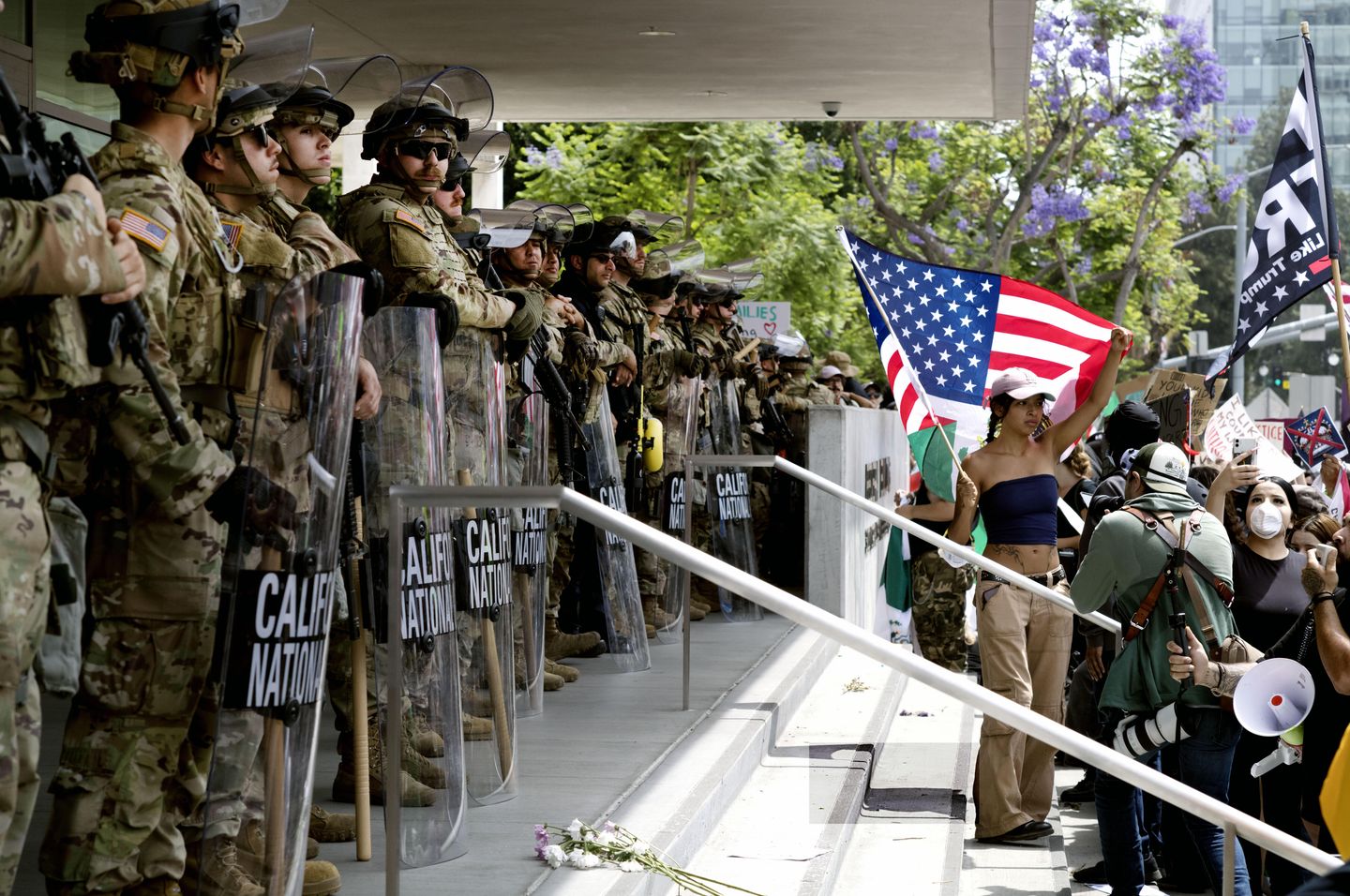
Federal appeals court judges seemed inclined to bless President Trump’s decision to deploy the National Guard to quell unrest in Los Angeles over the objections of Gov. Gavin Newsom, suggesting that the administration is on solid legal ground.
During oral argument on Tuesday, a three-judge panel of the 9th U.S. Circuit Court of Appeals questioned the reasoning behind a lower court decision that ruled Mr. Trump violated the law and the Constitution in federalizing and sending thousands of Guard soldiers into the city.
They wondered what role the courts can play in reviewing Mr. Trump’s decisions, and cast doubt on California’s argument that he needed to get Mr. Newsom’s consent before federalizing the troops.
Judge Jennifer Sung, a Biden appointee to the court, said there’s longstanding Supreme Court precedent that gives the president broad discretion in decisions to call out the guard.
“It seemingly rejected the exact argument you’re making,” she told Samuel Thomas Harbourt, California’s lawyer. “Congress was essentially giving the president the authority — the exclusive authority — to determine the exigency existed.”
The other two judges, Mark Bennett and Eric Miller, are both Trump appointees.
Brett Shumate, the Justice Department’s lawyer, told the court that the troops are still needed more than a week after the initial outbreak of violence at U.S. Immigration and Customs Enforcement’s deportation operations in Los Angeles.
He said ICE continues to face obstacles from “violent” mobs, and it’s only with the Guard troops that they’ve been able to carry out Mr. Trump’s deportation demands.
He pleaded with the judges to block District Judge Charles Breyer’s ruling last week that the deployment was illegal and unconstitutional.
Judge Breyer’s ruling is on hold while the appeals court considers the matter.
“If this order goes into effect, it will be putting lives at risk,” Mr. Shumate told the court.
But Mr. Harbourt begged the judges to step in and stop Mr. Trump, saying he’s claiming unprecedented power to deploy troops to accomplish his goals.
He said that while Mr. Trump has targeted Los Angeles for now, the order doesn’t envision any limits on the number of troops, where they can be sent, or what they can do.
“That is staggeringly broad,” he said. “It is plainly unlawful, inconsistent with our nation’s traditions.”
Judge Breyer had ruled that Mr. Trump needed to do more to justify his deployment and that he needed to work at least to some extent with the governor. The law says the president’s orders go “through” a governor.
Mr. Newsom has argued that this should give him a form of veto over the deployment.
But the appeals court judges said that seemed to be a technicality, given that Mr. Trump sent his orders to the state guard adjutant general, who under state law acts for the governor.
The case has quickly developed into a major constitutional test of presidential powers, with Mr. Newsom casting himself as a bulwark against “authoritarianism.”
Mr. Trump ordered guard troops into Los Angeles on June 7, after a mob attempted to block ICE officers from making arrests and tried to breach a detention facility. As unrest spread, the deployment grew.
As of Saturday, there were 4,155 Guard soldiers, 821 active-duty Marines and 382 vehicles involved in the federal military effort, according to Army Major Gen. Scott Sherman.
In court filings, the top ICE official in Los Angeles said they continue to face disruptions due to the protests, and the Guard troops have been “instrumental” in overcoming that.
In one incident from this weekend, he said, protesters were blocking ICE from being able to transport about 130 migrants. Guard troops were able to clear a path for vans to get through the protest line.
Gen. Sherman said the troops are there to assist the federal agents in carrying out their duties with “minimal interference from bystanders. They are not engaged in immigration enforcement themselves.
Troops are deployed at several federal buildings in the city and are also riding along with ICE officers and agents as they attempt to make at-large arrests out in the community.
California says in its court filings that the Guard soldiers should be focusing on wildfire prevention right now, ahead of the dangerous burn season. With 30% of the state’s current available Guard forces deployed to Los Angeles, that hinders those efforts.
The state also submitted a declaration from a Mexican lawyers’ group saying its members had to take a different route than they wanted as they marched this weekend because they didn’t want to get tangled up with the troops guarding a federal building.
They suggested that it hindered their rights.
Lawyers for California also compared the current protests to past mayhem, such as overzealous sports fans getting unruly in the wake of a Los Angeles Lakers victory. California said those instances have always been handled locally, with no need for the president’s involvement.












